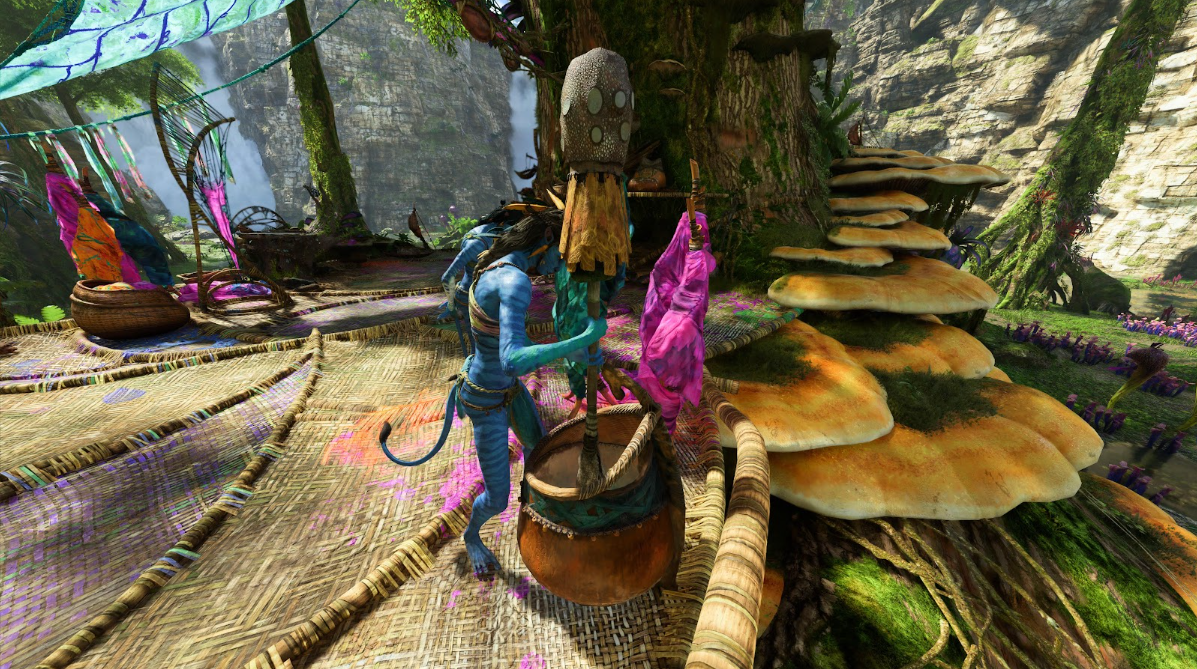
The Na’vi mashing pole, or ikut, is an indispensable, large pestle-like tool for food preparation and for use in dyeing textiles.
They are used for mashing food, usually grains or seeds, into tsyo (flour), and can be up to 3.3 meters tall. Ikut are also used to relieve daily toil through music. Although Na’vi music is typically less rhythmically oriented, the rhythmic activity in domestic songs increases during communal work activities, specifically during food preparation.
The Na’vi will use any excuse to turn an activity into a moment for music. Workers often gossip and sing during this activity. As they pound grains into flour, the ikut create a rhythmic accompaniment to their singing. When pounded, each pole creates a slightly different pitch, due to their differing sizes. The workers pound so that their ikut create interlocking rhythms and a subtle melody, which is then elaborated on by others in the group.
An ikut consists of a thin tree trunk with a hardwood base (fire hardened), topped by a heavy seed pod and ceremonial clatter sticks. The clatter sticks attached to the poles, although not specifically musical instruments, add a pleasant noise to the mix.
The Aranahe use ikut for stirring and pressing textiles that they soak in dye.
